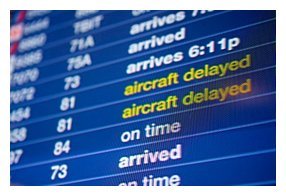
New numbers released by the Federal Aviation Administration show reports of air-traffic errors having nearly doubled in three years.
This raises the question. Who would you rather have controlling airports and airport safety: Government, or the private sector?
The nearly universal answer to this question, I expect, will be: Government, of course. But why? Government has no stake in the lives of the people it’s protecting. True, it could be embarrassing or even a scandal if the number of accidents escalated due to improper air-traffic control. But no President or Congressman is ever going to resign over such a thing, not even if there are deaths. The show will go on, only with different appointees. No government official will ever lose millions of dollars over an accident. No government official faces competition of any kind. If government runs everything, there’s nobody who can do a better job to make government look bad.
The private sector, on the other hand, has a deep financial and personal stake in the production, efficiency and safety of the businesses it operates. The only reason people find it unthinkable to turn airports and air safety into a business is because it hasn’t been done before. The unspoken assumption is, “It’s not done. Therefore, it can’t be right.” If this were the case, there never would have been a point to developing electricity, computers or anything else that came about because of innovation and “thinking outside the box.”
Keep in mind that while airlines are for-profit entities, airports generally are not. Nobody makes a profit out of successfully running a safe, efficient airport. Ditto for air-traffic control. Nobody, other than the occasional political appointee, either at the FAA or the local level, stands to lose his or her job from a failure to do things right. As with all things government, things tend to stay the same.
We’ve been reading about escalating air-traffic control errors for decades — for all of my adult life, in fact, going back to the late 1970s. How come there has been little or no innovation in air-traffic safety and control since that time? Think of all the other things that have come on the scene since the late 1970s: Cell phones, smart phones, the Internet, the personal computer, huge advances in medical treatment, the list goes on. Airports, in the meantime, are still operating pretty much as they did 40 or 50 years ago. That’s government for you.
Many airlines have reportedly opposed privatization of airports. They fear it will cost them more money. But what about satisfied customers? People tend to blame problems created by airports and a federally monopolized FAA on the airlines. In fact, people blame everything on the airlines. In a privatized sector, airports and air-traffic would operate on the premise of profit, efficiency and pleasing customers — the same way airlines are motivated. Imagine how much better an experience of flying could be if it operated under the framework of a company like Microsoft, Apple or WalMart rather than the self-conscious edicts of some presidential or congressional appointee. Private entities are concerned with making things right, while public officials merely have to make things look right.
People want to feel safe when they fly. Who could argue with this? We all want to feel safe when we fly, and we all want to get where we’re going as quickly and efficiently as possible. It’s important to understand that most of the problems you encounter while flying are not the fault of the for-profit airlines; they’re the fault of the government-run air-traffic system and airports themselves. Most people are at least reluctant to hand over the practice of medical care — surgery, cancer diagnosis and treatment, heart disease treatment — to the federal government. Why? Because these are life and death matters, and everyone knows that government cannot do much of anything right. Flying is also, at least potentially, a life and death matter.
When I fly safely, I’m not grateful to the government. My attitude is that the flight took off and landed safely in spite of the government. I’m grateful to (1) the for-profit incentives of the for-profit airlines; and (2) the science and technology that made these airplanes possible. Capitalism and science — ultimately, human reason — are what lift mankind; NOT government. Government is there to protect our property and the social order itself, via the upholding of individual rights, but government by itself actually does not create anything — including flight.
Airlines and airports are one of those areas, like medical care and education, that are floundering. Notice that the areas with the most government involvement, ownership and management are the ones that flounder or fail the most. The areas with the least government involvement do the best. Private ownership is a good thing. It’s a safe thing.
Whether you think so or not, you want airlines as well as all things related to airports to be privately owned. The people managing and running these airports will lose all their profit if they make errors, especially in a field such as air travel where the stakes are so high. People in these industries suffer the most, not only financially but also personally whenever there’s a fatal accident. They lose trusted and valued fellow workers, people who are like family to them in some cases. Nothing is as heartless, unaccountable and cold as government.
When and if more people come to understand this, the airports — like so many other sectors of society — will finally be free to function at their best.
